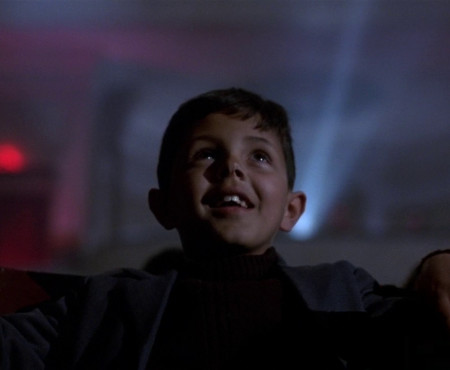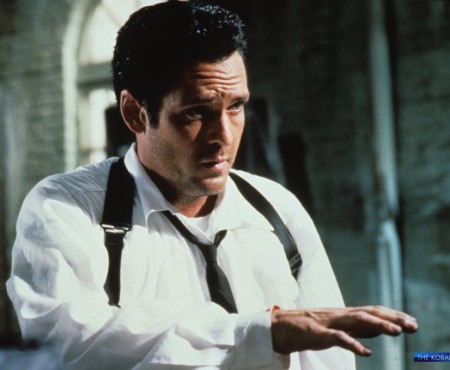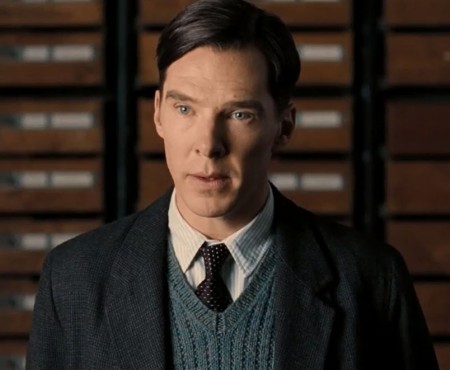Quentin Tarantino has always been interested in making films that lie on the intersection of image and music. His career began with a roundtable discussion of Madonna’s “Like a Virgin”, and all throughout his early pictures characters are accompanied by radio, cassettes and records. Music has always followed the career of Quentin Tarantino and in his earliest films they soundtracked a burgeoning directors young voice into something that points towards iconic in the same way Scorsese became lauded for rock n’ roll violence. Tarantino is an artistic gleaner, taking directly from his influences and openly discussing them in his pictures. In his later pictures he has turned to the work of Ennio Morriconne as his vision evolved into spaghetti western expansivenss, but in his earliest pictures pop music, rock n’ roll and soul coloured movies that were both his own, and homages to blaxploitation, french new wave, and the crime pictures of the film brats.
The radio is of utmost importance in the earliest films from Quentin Tarantino. In Reservoir Dogs it acts as a framing device and a constant companion to the colourful misters. Throughout the picture a DJ discusses each song that plays over “K-Billy’s Super Sounds of the Seventies”, and the most notable of these scenes is the torture of a police officer set to Stealers Wheel’s “Stuck in the Middle With You”. While the tight narrative focus that begat many classic scenes of dialogue driven rapartee are notable perhaps the most classic scene in all of Dogs is that of a malicious dance from one Mister Blonde. When Mister Blonde ties up a police officer in a chair while the DJ discusses the Dylanesque qualities of the tune that is about to play one knows something vicious is about to happen, but it’s within the playfulness of the song selection and the movement of Michael Madsen’s gleeful death waltz that the scene finds a rhythm and bouncy quality that delivers the dissonant quality of murder mixed with pop music. Which is a well Quentin Tarantino would come to often (2pac in Django Unchained for example).
Sometimes a song can introduce a character better than a line of dialogue or an establishing shot, and that is the case when audiences came to know Mia Wallace in Pulp Fiction. When Vincent Vega arrives to pick up her for a date he opens up a door into a smokey den of modern furnishings, black and white architecture and the soft sounds of Dusty Springfield’s “Son of a Preacher Man”. Mia Wallace speaks to Vincent saying she’ll be down in a moment with a close up on her crimson lips, and the song, along with the furnished mansion, and her sleek black and white outfit all represent a woman who is inherently cool. Mia Wallace is the backbone, the life, the Rosetta Stone of Pulp Fiction, there’s a reason why she sits on the front of the poster. She exemplifies the films tone perfectly, and the choice of using “Son of a Preacher Man” gave audiences a feeling that this is a woman who is both modern and classic, wholly unique and devastatingly chic, yet just rugged enough to cast some of that away in pure freespirit. The type of woman to dance on a whim, but only to 50s rock and roll.
Jackie Brown saw a slight change in Tarantino’s usage of music at this point. He still introduced characters in song (“Across 110th Street” and “Natural High”, respectively), but he uses music more romantically in Jackie Brown than he ever has in his entire career. When Max Cherry bonds Jackie Brown out of jail he sees her in silhouette approaching, her heels clack on the hard concrete outside the jail, and warm chords from Bloodstone’s “Natural High” begin to play as she approaches closer. He gets lost in the effervescent beauty of the woman approaching, and this song represents everything he’s feeling. In a later scene Max and Jackie discuss records, and she introduces him to the Delfonics. He had never heard of them, but he buys their cassette instantly and any time Max is by himself he plays the song they bonded over (“Didn’t I Blow Your Mind This Time?”). There’s always songs or pieces of music you connect to moments of your life. Soundtracking becomes inevitable with human existence, and Quentin tapped into that beautifully in the relationship between his characters and his audience.





















4 thoughts on “Spin Me ‘Round: The Early Years of Tarantino’s Music”
When I say this, I mean the upmost offense to the author. That was horribly written. It looks like a typical third grade 5 paragraph style, except in the fourth paragraph we have to rap things so she puts a concluding sentence for the whole piece on the end. The open paragraph even has a sentence fragment! This is hardly what I would consider professional writing, and it has tarnished my opinion of this website.
However, writing style aside, the primary issue here is that Tarantino’s use of music in his early films is very contested. Some claim that he is horrible at picking music. Others claim his musical choices are the source of his genius. The author clearly sides with the latter, and as such now has to defend it. But she’s not defending it from any of the attacks. With this Jackie Brown and Pulp Fiction sections, the authors main point is that the music introduces character and conveys how a character is feeling. Arguably such ideas could be conveyed with a score as well. The real question is why do these pop songs do a more accurate job of conveying these ideas than a score would, a question that the author clearly didn’t know was a thing.
The only moment in which the article comes close to approaching saying something meaningful about Tarantino is when she mentions how he pits gruesome violence against pop music. She almost gets into a conversation about pop music humanizing this otherwise inhuman act. She almost talks about how the pop helps create a barrier between us and the violence. She almost says something useful.
I’ve never read an article from this website, nor have read any of her other articles, nor do I want to, but the website ought to seriously reconsider having her right for them. Her lackluster delve into the music of early Tarantino shows that she can do a quick google search of the three most popular songs off of their respective soundtracks, and note that they were, “good choices.” That’s not writing, it’s googling, with style.
They should reconsider having her “right” for them?
Constructive criticism of the upmost importance.
Pingback: Who is Quentin Tarantino? – filmjunkiesite